Gray-Scott Model at F 0.0820, k 0.0590
These images and movie demonstrate the behavior of the Gray-Scott reaction-diffusion system with σ=Du/Dv=2 and parameters F=0.0820, k=0.0590.
From an initial pattern of red with blue spots, the spots grow to fill the space, then any acute outer boundaries become worm tips that grow to fill the space. Worm tips sometimes merge into walls (look to the right of center at 0:05 to 0:15 in the movie).
Negative worm tips shrink (a few examples of this can be seen starting at about 1:10).
Although some joining of features is possible, pattern evolution is generally homotopic. If a negative initial pattern is used (blue with spots of red), it usually produces negatons (true negative solitons) and negative worms, which shrink to negatons. Negatons themselves are viable only in clumps; any sole negatons die off about 7,500 tu after formation.
Categories: Pearson θ; Wolfram 2-a (glossary of terms)
 increase F increase F
 | |||
  |
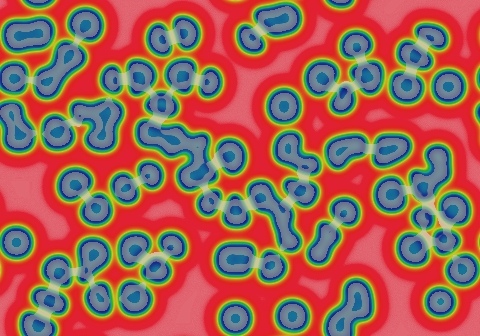
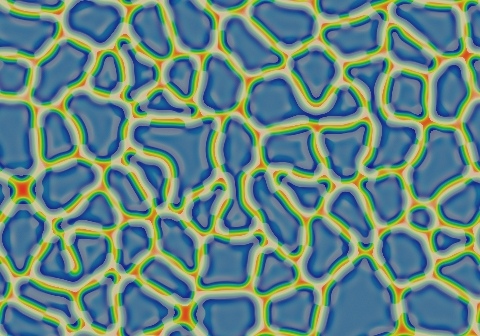
|
15 frames/sec.; each fr. is 342 iter. steps = 171 tu; 1800 fr. total (307,800 tu) |  increase k 
|
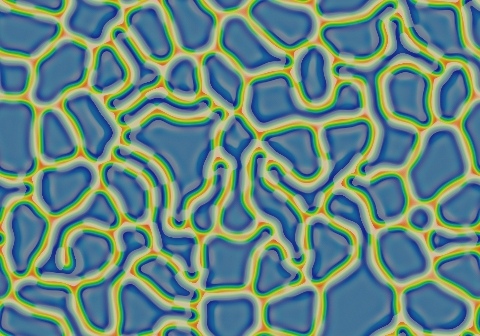
|
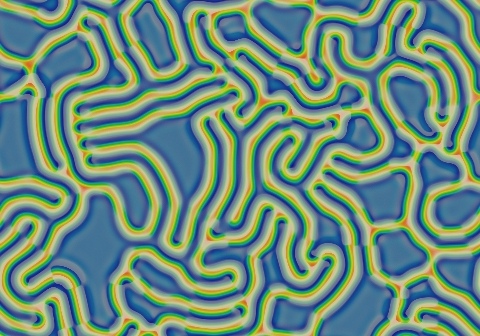
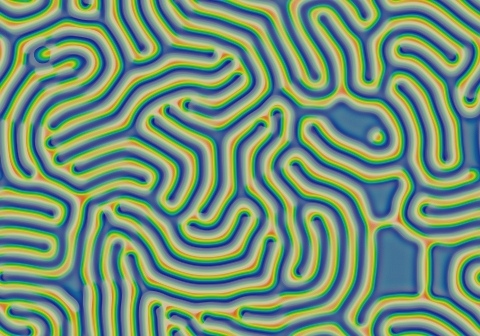
| ||
 decrease F decrease F
 |
In these images:
- Color indicates level of u, ranging from purple (lowest u values) through blue, aqua, green, yellow and pink/red (highest u values)
- Areas where u is increasing are lightened to a light pastel tone; where u is decreasing the color is vivid.
- In areas where u is changing by less than ±3×10-6 per tu, an intermediate pastel color is seen. This includes areas that are in steady state or equilibrium.
''tu'' is the dimensionless unit of time, and ''lu'' the dimensionless unit of length, implicit in the equations that define the reaction-diffusion model. The grids for these simulations use Δx=1/143 lu and Δt=1/2 tu; the system is 3.2 lu wide. The simulation meets itself at the edges (periodic boundary condition); all images tile seamlessly if used as wallpaper.
Go back to Gray-Scott pattern index
This page was written in the "embarrassingly readable" markup language RHTF, and was last updated on 2019 Jan 05.
 s.11
s.11